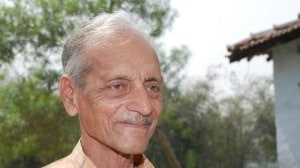Risk of Torture’ Stops Sikh Terrorists’ Deportation to India
LONDON, AUGUST 1: Two Sikh men who entered Britain illegally and were arrested in 1998 for conspiring to commit acts of terrorism in India...

LONDON, AUGUST 1: Two Sikh men who entered Britain illegally and were arrested in 1998 for conspiring to commit acts of terrorism in India have won the right to live in Britain. Paramjit Singh, 26, and Mukhtiar Singh, 27, described by the British Home Office as “international terrorists” who were a threat to Britain’s “national security”, have won an appeal against a UK government decision to deport them to India.
The two were arrested, along with other unnamed Sikh men, in 1998 after a MI5 operation uncovered a plot to transport explosives and detonators from Pakistan to India. British investigators have linked Paramjit and Mukhtiar Singh to the Khalistan Commando Force and it is alleged that they were part of a group involved in “reviving Sikh insurgency”.
The two had earlier been refused refugee status because, under a 1996 amendment to the UN Refugee Convention, anyone involved in terrorist activity is precluded from claiming such a status. British Home Secretary Jack Straw had concluded that because of what was known about the two men’s activities in India, “there are serious reasons for considering that (they) have been guilty of knowingly financing, planning and inciting terrorist acts”.
The Home Office relied on a new definition of terrorism laid down by an appeals court in May in the case of a Pakistani cleric, Shafiq ur Rehman. Rehman was accused of being involved in fund-raising and recruiting mujahideen for fighting in Kashmir. In the Rehman case, the court ruled that in future any individual considered a threat to Britain’s “allies” was by inference a threat to Britain and could be deported.
The Special Immigration Appeals Commission (SIAC) which heard the appeals of Paramjit and Mukhtiar did not challenge the Home Secretary’s assessment of them as “international terrorists”. In fact, the Commission concluded that the Home Secretary had adequately demonstrated that both men were a danger to Britain and that it was “conducive to public good to deport them”. Despite this, the SIAC ruled that the pair could not be deported to India as there was substantial risk that they would face “torture and degrading treatment”.
The SIAC, clearly mindful of the contradictions in its ruling, said: “Law-abiding citizens of the United Kingdom might reasonably feel disquiet about a state of affairs which permits international terrorists, proved to be a danger to national security, to remain here.” It added: “We can only say that this state of affairs follows upon Article three of the European Convention and evidence that the men faced being tortured." Article three states, “No one shall be subjected to torture or to inhuman or degrading treatment.”
Paramjit and Mukhtiar had entered Britain illegally. Paramjit, described variously as an “itinerant preacher” and a “priest at the Guru Teg Bahadur Gurdwara in Leicester” arrived in Britain sometime between 1994 and 1996, hiding at the back of a haulage truck crossing over from the continent. Mukhtiar arrived by the same means in 1995. Mukhtiar, who has a family in the Midlands and Yorkshire, worked as a driver for the Sandwell Sikh community in Birmingham.
An official of the Indian High Commission insisted today there were no “specific charges pending against them in India”. However, he added that, if provable charges emerged from the British investigation, Indian authorities would pursue them. In the short term, however, the Indian House must grapple with the reasons why the deportation order was overturned. This is not the first case in which alleged terrorists have managed to remain in Britain on the ground that they face torture and inhuman treatment at the hands of Indian authorities.
The case of Paramjit and Mukhtiar is quite similar to a European Court decision in November 1996 which overturned a UK deportation order against Karamjit Singh Chahal. Chahal, a founder of the International Sikh Youth Federation, was alleged to have been involved in supplying funds and equipment to terrorists in Punjab, planning and directing terrorist attacks in India and intimidating moderate Sikhs in Britain.
Chahal was in jail for six years. After courts in Britain turned down his appeal against deportation, he went to the European Court of Human Rights in Strasbourg. The court upheld Chahal’s claim that if he was deported to India, he faced a real threat of torture or other inhuman or degrading treatment. The court ruled that by deporting him to India, Britain would be breaching his right to protection from torture and degrading treatment.





- 01
- 02
- 03
- 04
- 05


























